We've reached 1,000 lives lost to coronavirus in Washington state. Here are some of their stories
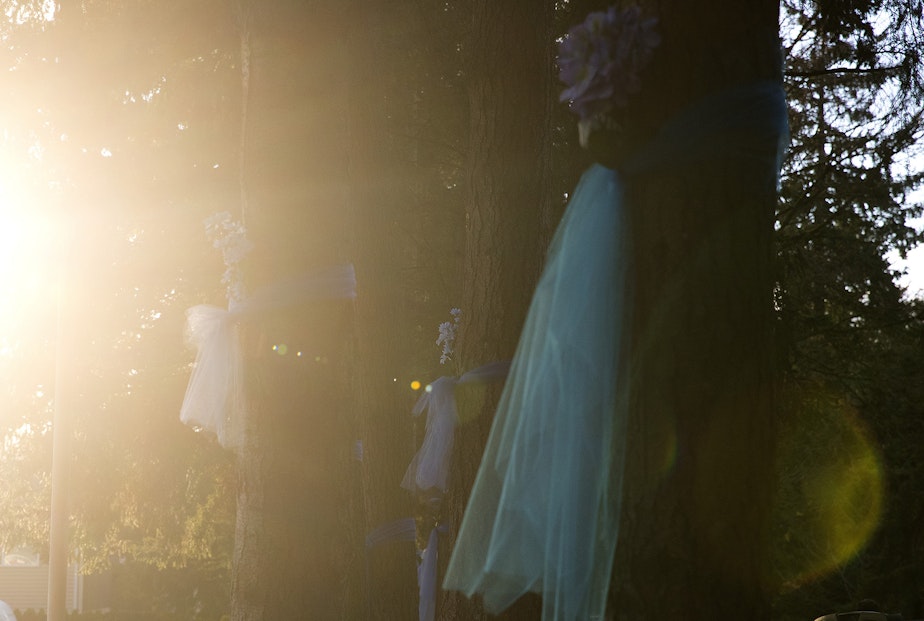
A skydiver who volunteered at the Snohomish County Food Bank.
A singer in the Skagit Valley Chorale who advocated for women’s rights.
A Seattle pastor and his wife of 23 years whose job was to take tickets at the downtown ferry dock.
A former Hanford engineer who wanted his ashes to be scattered in the Nile River, in his homeland of Egypt.
The coronavirus pandemic has taken a heavy toll here in Washington state, where more than 1,000 people have died two and half months after the outbreak became known.
Too often, they died without a loved one holding their hand or whispering 'I love you.'
They died amid a panic, as this fast-moving virus closed in.
Their families had little chance to say goodbye, and still wait to gather and mourn together.
Among this immense loss, here are a few of their stories.
The first deaths
Many of the first deaths in the state were residents at Life Care Center of Kirkland. Among them was Louise Weatherill, who passed away in the same week that state officials announced the first death.
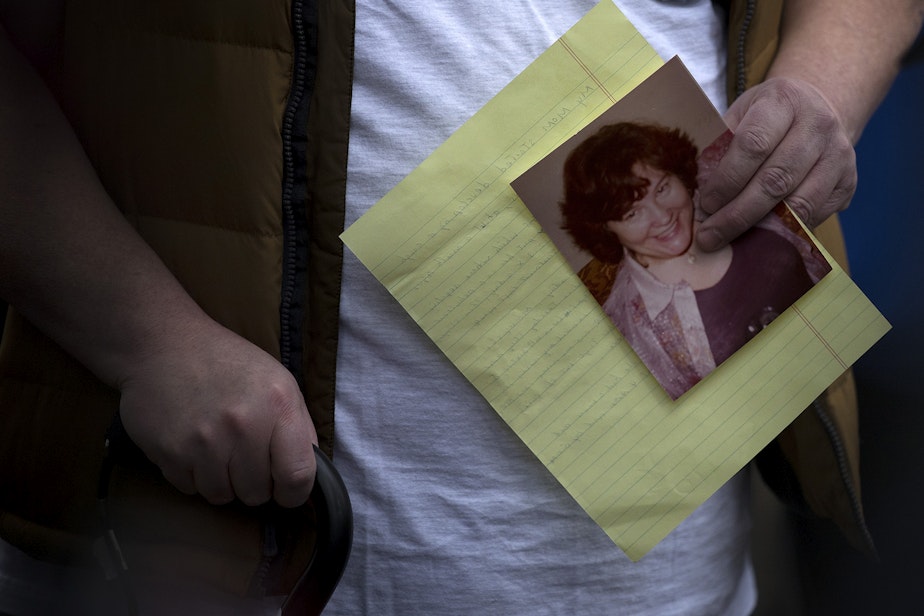
March 4: Louise Weatherill, 85, Life Care resident who loved animals
The puppies, especially, always put a smile on Louise Weatherill’s face. She raised German Shepherds for two decades, then later Chow-Chows, and her son Mike Weatherill said the money from her small business paid for the little extras when he was growing up. “She made a lot of things possible,” he said. “We would have good Christmases usually.”
“I cry a little bit every day,” Mike Weatherill said. “She was just a sweet person, cared about everyone.”
Louise Weatherill was a proud member of the Cowlitz Tribe, based in Longview Washington. Her son said she was recognized as an elder when the tribe gained federal status in 2000.
Read more about Louise Weatherill here.
Unlike Weatherill, most of the 45 Life Care residents who died remain unknown to us, save for a line from the Department of Public Health with the day they died, and their age.
Among them:
February 26: A woman in her 80s who was a resident of Life Care and died at her family home.
February 26: A man in his 50s who was resident of Life Care and died at Harborview Medical Center in Seattle.
February 29: A man in his 70s who was a resident of Life Care and died at EvergreenHealth.
Early losses, county by county
In the early days of the virus spread, the losses rippled out beyond the epicenter near Seattle. By mid-March, health officials announced deaths in more than a dozen counties, including Snohomish, Pierce, Skagit, Thurston, Clark, Spokane, Grant, and Benton County.
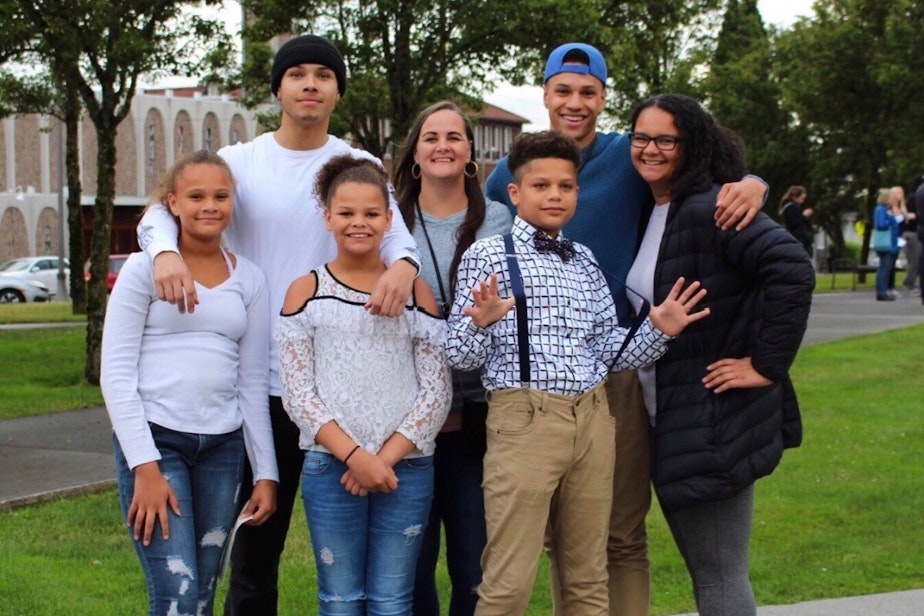
March 16: Sundee Rutter, 42, mother of six, cancer survivor
A long battle with breast cancer left Sundee Rutter “without much of an immune system,” her family posted on a GoFundMe page after her death.
The fundraiser is for her six children, ages 13-24, who Rutter had raised alone after their father passed away several years ago.
In Rutter’s final days, safety restrictions at Everett’s Providence Hospital prevented the children from being with her in the room. Staff found a way to help them say goodbye:
"They took a walkie-talkie, and they placed (it) right by her bedside, on the pillow," her son Elijah Ross-Rutter, 20, told CNN. Looking at her through a window, "We got to say our final words and goodbyes to our mom," he said.
"I was able to tell her I loved her," he said. "It's kind of hard. In the moment, you really don't know what you're going to say, you know?"
Elijah said he told his mother that "everything's going to be all right with the kids."
"Us older siblings, we're going to make sure everything's okay with (the younger ones) and that they're going to grow up to be some adults that my mom would want them to be," he recalled. Via CNN
Tyree Rutter, the eldest, graduates from college in June and plans to take custody of his younger siblings.
“Your kind words have been the light in a rather dark moment for both our family and community,” he wrote to contributors on the fundraising site.
“Continue to keep us in your thoughts and prayers. From the bottom of our hearts, thank you.”
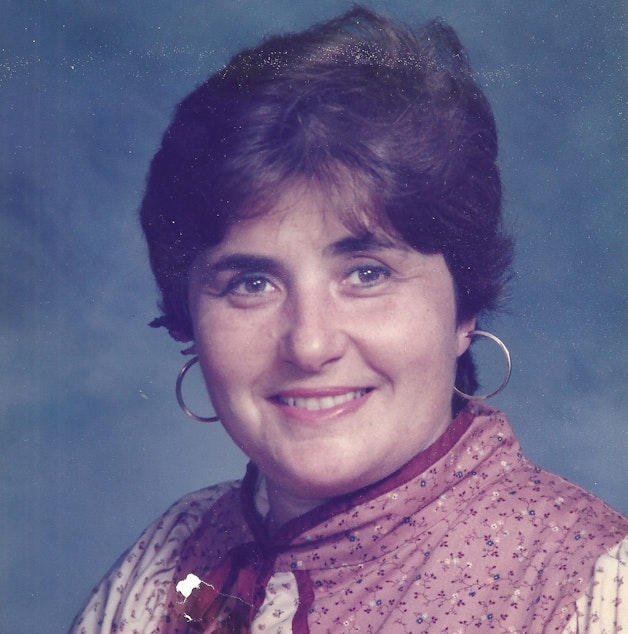
March 21: Nicki Hamilton, 83, Skagit Valley choir singer and women’s rights advocate
Nicki Hamilton was a pilot, a world traveler, a ham radio operator, a chorale member, and, perhaps above all, a New Yorker. She died of coronavirus on March 21 at the Skagit Valley Hospital in Mount Vernon. She was 83.
Hamilton was among 51 members of her choir who were diagnosed with Covid-19 after a rehearsal together. Victor Hamilton, her husband of 27 years, said they did not have a chance to say goodbye.
“The last time I saw her was when we put her in the ambulance,” Hamilton said. “I figured she'd be coming home.”
“The floor nurse called me late that night and she said Nicki was struggling to breathe,” he said. “She did not make it through the night.”
Hamilton said the family intends to eventually have a memorial in New York City, where his wife was from, and to scatter her ashes in the Hudson River as she wished.
A devastating week
The week of March 22 remains the deadliest week so far for the virus, claiming 170 lives in Washington. More than half were in King County.
In this week, Governor Jay Inslee signed a statewide order requiring people to stay home.
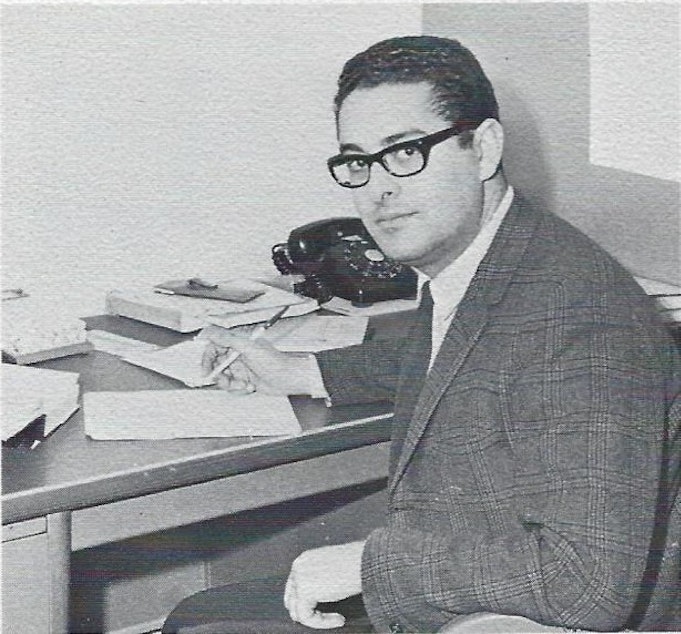
March 25: Fadel Erian, 82, former Hanford engineer
In the last official job of his engineering career, Fadel Erian helped develop a way to safely store nuclear waste at the Hanford site in eastern Washington.
But his dream project tied back to his homeland in Egypt, where he wanted to dredge silt from the Nile River and use it for farmland near the Red Sea. It’s a project he continued to pursue up until his death. “He was very consistent in his interest in improving the world,” said his son, Neil Erian.
Dr. Erian contracted Covid-19 at a rehabilitation facility near his home in Kennewick, where he was recovering from a broken leg. He died on March 25 at Trios Health Center. He was 82.
“When this virus hit. I didn't realize how much danger he was in,” Neil Erian said. “Within three days, he was gone.”
“He passed away so suddenly and I just felt very unprepared to deal with this, I guess that was the most shocking part. And then I couldn’t go see him – that would’ve been the normal thing that I would’ve done but that wasn’t possible.”
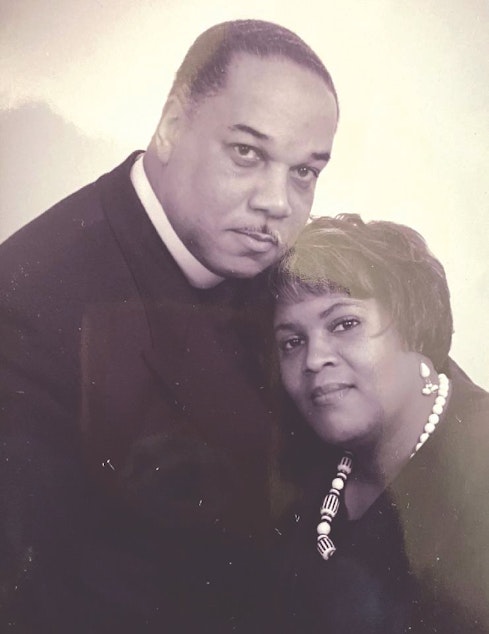
March 28: Esther Bryant-Kyles, ticket taker at the Seattle ferry terminal
April 7: Pastor Edwin J. Kyles, Jr., Army veteran and community builder
“Burying my mom and stepdad today,” James Lowe wrote on his Facebook page. “Thanks for all the love and support.”
After 23 years of marriage, Edwin Kyles Jr. and Esther Bryant-Kyles passed away within 10 days of each other.
Here’s an excerpt from their obituary published in The Facts Newspaper:
Edwin J. Kyles, Jr. (fondly known as “Popsie”) was born on March 13, 1945 in New Orleans, Louisiana. Esther Bryant Kyles was born in Tacoma, Washington on December 21, 1955. Both Edwin and Esther were longtime residents of Seattle, Washington. Edwin and Esther founded the Shining Star Faith Ministries COGIC. Pastor Edwin Kyles and Lady Esther Kyles were faithful leaders and performed their responsibilities as stewards of God’s people with joy and enthusiasm.
Pastor Kyles was a veteran in the United States Army and a member of the African American Veterans Group of Washington. He was a faithful employee with the Boeing's Company for over 15 years. As an ambitious entrepreneur, Edwin was an investor and partner in the opening of the Columbia City Movie Theater. Edwin later retired to become a full time Pastor.
Esther was employed at the Washington State Ferries for 25 years and worked as a ticket taker at the Seattle Colman Dock. Her gentle smile and kindness impacted the lives of customers and her fellow employees.
They both will be greatly missed by their children, grandchildren, family, church family and dear friends. Their memory will forever be in our hearts.
Snohomish County, second highest death toll
A man in Snohomish County, who later recovered, became the first person to test positive for Covid-19 in the U.S. on January 20. Health officials now say it’s likely the virus arrived in the area before then, based on recent antibody testing.
After King County, Snohomish continues to have the second highest death toll in the state. Pierce County has a slightly larger population than Snohomish, yet roughly half the number of deaths.
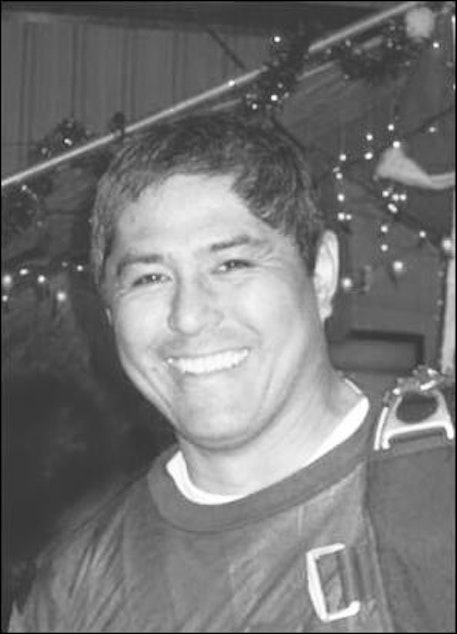
March 31: Art Bori, 65, former skydiver and devoted food bank volunteer
Gentle. That’s how people often described Art Bori. Yet he pursued his interests at full force, from skydiving to wildlife photography to his volunteer work at the Snohomish County Food Bank. He loved to travel off the beaten path with his wife, Wendy, to places like The Falkland Islands, Brazil's Panatal, and The Great Bear Rainforest in British Columbia.
He was born at a U.S. Army base in Okinawa, Japan, and his family relocated to Tacoma when he was a child.
Bori died from Covid-19 on March 31. He was 65.
His wife, Wendy Bori, talked with KUOW about his last days.
“The week before he got sick, he was going to the food bank every day to help out. He was also going to grocery stores to stock up our house.
He started getting the dry cough and then by the morning he had a fever of 102.4.
It got serious very quickly for him. He was in the hospital for a week and a half on a ventilator, and his lungs just never recovered. I think that the hardest part for him was when they were going to put him on a ventilator. He knew that meant his odds weren't very good. I think it was incredibly scary and I really would have wanted to have been there with him.
That’s truly one of the hardest things, that I couldn’t be with him.
The nurses at Providence were just amazing. They had turned on some soft classical music and then two other nurses who had cared for him those 10 days, they also came into the room to be with him so he wasn't alone.
He was just a very gentle, kind soul. A loss for the world.”
Read more about Art Bori here.
King County, hardest hit
As of this writing, more than half the deaths statewide have occurred in King County, where roughly 30% of the state’s population lives. While more than 60% of the deaths in the county (and state) are linked to long-term care facilities, others crossed age groups, communities and professions.

April 2: Thomas Lopez, 44, owner of Tacos El Tajin food truck
Thomas Lopez was a well-known fixture outside the Amazon headquarters in downtown Seattle, where regulars to his food truck often heard his motto: “Take care and don’t drive too fast.”
Lopez, a resident of Pacific, is survived by his wife Antonia Zamorano and their five children.
These comments are from a GoFundMe page organized by Lopez’s son, Isaac, to help pay for funeral bills and keep the taco trucks going.
From Molly, one of the 1,400 people who donated in the first 10 days:
“For years I ordered from the taco truck (almost every day) and I always looked forward to seeing him. He was a much needed burst of positivity in my life. He always jokingly asked, ‘How’s the boyfriend’ and made me feel a tad guilty for skipping yoga with a, ‘No yoga today?’ He will be greatly missed.”
From Angel, another donor:
“Llegué a SLU no hace mucho desde México y en los Tacos el Tajin encontré la comida para no extrañar tanto a mi país. Tomás siempre era amable y bromista, siempre con una sonrisa y, aunque no teníamos parentesco, me yo lo sentía como en familia. Q.E.P.D."
Translation: “Not long after I arrived to South Lake Union from Mexico, the food at Tacos el Tajin made me not miss my country so much. Thomas was always friendly and joking, always with a smile. Although we weren’t related I felt like we were family. R.I.P.”
Update from son, Isaac Lopez:
“To everyone that has donated, I really would want to hug every one of you and say thank you. Reading the comments makes me more happy that he has made a positive impact on so many people’s lives. Take care and don't drive too fast!”

April 16: Samina Hameed, 59, Metro bus driver
Samina Hameed started her routes on the Eastside and crossed through busy stretches of Seattle, according to The Associated Press. She died on April 16 due to complications from coronavirus. She was the first Metro bus driver to die during the pandemic.
Here’s an excerpt from her obituary:
“Samina was born in Pakistan in November 1960. In October 1982 she married the love of her life and her best friend Isaiah Hameed. She immigrated to the United States starting a new life. She gave birth to three children Michelle, Joel and Jesse.”
The obituary continued in first person, “I will always smile thinking of her when I am sitting in the kitchen after she had cooked an incredible meal. She would always say, ‘Have more.’ She always shared her affection through food.”
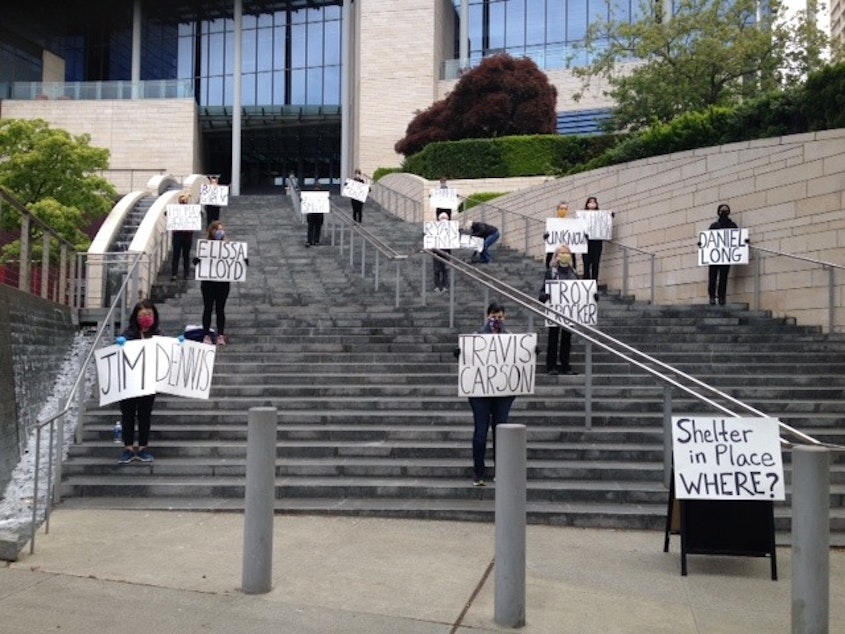
April 20: Three homeless deaths announced in King County
Women in Black, a group that holds regular vigils for homeless deaths in King County, recently compiled the names of the dead for April. On the list were three people who reportedly died from Covid-19.
“Eric Jones, who died in the hospital in April with Covid-pneumonia as tertiary cause; Jim and Dennis who were housed and beloved by our dear friends at Operation Nightwatch and died of Covid,” a member of The Homeless Remembrance Project posted on the group’s Facebook page.
“And all other formerly homeless people (perhaps five) who’ve died of the virus,” the post said.
On May 13, the women stood vigil on the steps of Seattle City Hall wearing face masks and holding name cards for the deceased, a sign for each one. Eric Jones. Jim. Dennis. As a policy, the county cannot confirm these names.
In a statement on April 20, however, King County health officials confirmed the deaths of two homeless individuals, and announced a third death at the county’s isolation and quarantine facility in Kent.
Beyond the official count
Nationally, some debate continues about how deaths are counted, and whether the actual numbers are higher or lower.
In a Senate hearing on May 12, Dr. Anthony Fauci addressed this point, saying “most of us feel that the number of deaths are likely higher.” One reason he gave is that during the peak of the outbreak, some people who died at home were not counted because they did not make it to the hospital.
Also missing from for the official number in Washington state: the many people who claimed this place as a home and left an imprint here, whose deaths will formally be counted elsewhere.
Bobby Begay was one of these people.
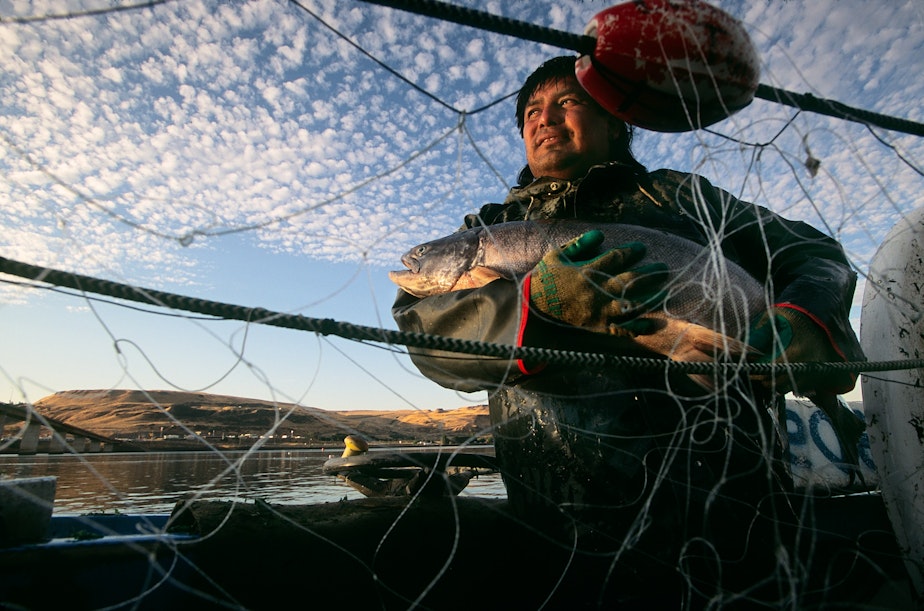
April 24: Bobby Begay, 51, Yakama Nation member who spent his career on the Columbia River
Bobby Begay was a member of the Yakama Nation, based in eastern Washington. He was a leader in the tribal fishing town of Celilo Village, where he made a home, on the Oregon bank of the Columbia.
It’s a river that shaped his life’s work.
The Columbia River Inter-Tribal Fish Commission, where Begay worked since 1998, posted this remembrance of him.
“It is with heavy hearts we share that CRITFC has lost one of our own.
Bobby Begay—Celilo Village leader, Yakama tribal member, and the CRITFC lead fish technician—passed away last night from Covid-19 complications.
Bobby was dedicated to his family, the Celilo community, salmon, the river, and tribal culture. He was a bridge builder who connected many groups and individuals across cultural divides.
His example of intertribal brotherhood embodied the hopes and values envisioned by tribal leaders from the Yakama, Umatilla, Warm Springs, and Nez Perce tribes when they came together to form CRITFC.
He was an incredibly generous person and had a willingness to share not only his harvest, but the message of why salmon, lamprey, and the river are central to our culture. He did so for countless groups with enthusiasm and humor.
We extend our thoughts and prayers to his family Megan, Daisy, Steven, Henry, and Jackie, and the entire Celilo Village and mourn with them the loss of a remarkable man.”
Our series, Lives Lost, remembers lives lost in the pandemic.
You can share an obituary of someone special to you by filling out the form below.

